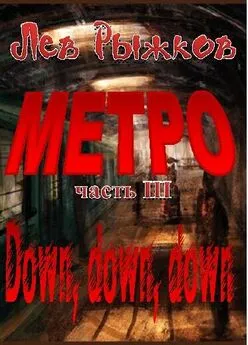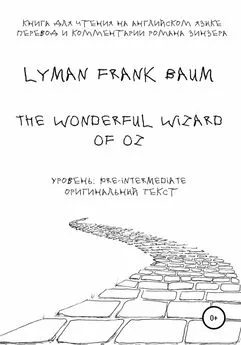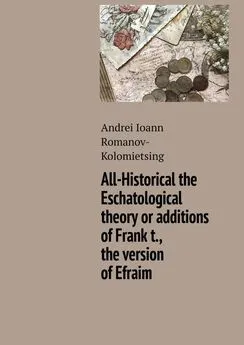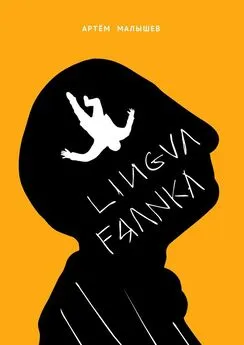Frank Herbert - Heretics of Dune
- Название:Heretics of Dune
- Автор:
- Жанр:
- Издательство:неизвестно
- Год:неизвестен
- ISBN:нет данных
- Рейтинг:
- Избранное:Добавить в избранное
-
Отзывы:
-
Ваша оценка:
Frank Herbert - Heretics of Dune краткое содержание
Frank Herbert was born in Tacoma, Washington, and educated at the University of Washington, Seattle. He worked a wide variety of jobs - including TV cameraman, radio commentator, oyster diver, jungle survival instructor, lay analyst, creative writing teacher, reporter and editor of several West Coast newspapers - before becoming a full-time writer.
In 1952, Herbert began publishing science fiction with "Looking for Something?" in Startling Stories. But his true emergence as a writer of major stature did not occur until 1965, with the publication of Dune. Dune Messiah, Children of Dune, God Emperor of Dune, Heretics of Dune, and Chapterhouse: Dune followed, completing the saga that the Chicago Tribune would call "one of the monuments of modern science fiction." Herbert is also the author of some twenty other books, including The Jesus Incident, The Dosadi Experiment, and Destination: Void. He died in 1986.
Heretics of Dune - читать онлайн бесплатно полную версию (весь текст целиком)
Интервал:
Закладка:
"Spannungsbogen!"
Waff rolled the ancient word on his tongue: The span of the bow! How far back you draw the bow before releasing your arrow. This arrow would strike deep!
"The Masheikh have waited longer than any other," Waff whispered. He dared to utter the word to himself here in his tower fastness: "Masheikh."
The rooftops below him glittered as the sun lifted. He could hear the stirrings of the city's life. The sweet bitterness of Tleilaxu smells drifted on the air coming in his window. Waff inhaled deeply and closed his window.
He felt renewed by his moment of solitary observation. Turning away from the window, he donned the white khilat robe of honor to which all Domel were conditioned to bow. The robe completely covered his short body, giving him the distinct feeling that it actually was armor.
The armor of God!
"We are the people of the Yaghist," he had reminded his councillors only last night. "All else is frontier. We have fostered the myth of our weakness and evil practices for these millennia with only one purpose. Even the Bene Gesserit believe!"
Seated in the deep, windowless sagra with its no-chamber shield, his nine councillors had smiled in silent appreciation of his words. In the judgment of the ghufran, they knew. The stage upon which the Tleilaxu determined their own destiny had always been the kehl with its right of ghufran.
It was proper that even Waff, the most powerful of all Tleilaxu, could not leave his world and be readmitted without abasing himself in the ghufran, begging pardon for contact with the unimaginable sins of aliens. To go out among the powindah could soil even the mightiest. The khasadars who policed all Tleilaxu frontiers and guarded the selamliks of the women were right to suspect even Waff. He was of the people and the kehl, yes, but he must prove it each time he left the heartland and returned, and certainly every time he entered the selamlik for the distribution of his sperm.
Waff crossed to his long mirror and inspected himself and his robe. To the powindahs, he knew, he appeared an elfin figure barely a meter and a half tall. Eyes, hair, and skin were shades of gray, all a stage for the oval face with its tiny mouth and line of sharp teeth. A Face Dancer might mimic his features and pose, might dissemble at a Masheikh's command, but no Masheikh or khasadar would be fooled. Only the powindahs would be gulled.
Except for the Bene Gesserit!
This thought brought a scowl to his face. Well, the witches had yet to encounter one of the new Face Dancers.
No other people have mastered the genetic language as well as have the Bene Tleilax, he reassured himself. We are right to call it "the language of God," for God Himself has given us this great power.
Waff strode to his door and waited for the morning bell. There was no way, he thought, to describe the richness of emotion he felt now. Time unfolded for him. He did not ask why the Prophet's true message had been heard only by the Bene Tleilax. It had been God's doing and, in that, the Prophet had been the Arm of God, worthy of respect as God's Messenger.
You prepared them for us, O Prophet.
And the ghola on Gammu, this ghola at this time, was worth all of the waiting.
The morning bell sounded and Waff strode out into the hall, turned with other emerging white-robed figures and went onto the eastern balcony to greet the sun. As the Mahai and Abdl of his people, he now could identify himself with all Tleilaxu.
We are the legalists of the Shariat, the last of our kind in the universe.
Nowhere outside the sealed chambers of his malik-brothers could he reveal such a secret thought but he knew it was a thought shared in every mind around him now, and the workings of that thought were visible in Masheikh, Domel and Face Dancer alike. The paradox of kinship ties and a sense of social identity that permeated the khel from Masheikh down to the lowliest Domel was not a paradox to Waff.
We work for the same God.
A Face Dancer in the guise of Domel had bowed and opened the balcony doors. Waff, emerging into sunlight with his many companions close around, smiled at recognition of the Face Dancer. A Domel yet! It was a kin joke but Face Dancers were not kin. They were constructs, tools, just as the ghola on Gammu was a tool, all designed with the language of God spoken only by Masheikhs.
With the others who pressed close around him Waff made obeisance to the sun. He uttered the cry of the Abdl and heard it echoed by countless voices from the farthest reaches of the city.
"The sun is not God!" he shouted.
No, the sun was only a symbol of God's infinite powers and mercy - another construct, another tool. Feeling cleansed by his passage through the ghufran the previous night, renewed by the morning ritual, Waff could think now about the trip outward to powindah places and the return just completed, which had made ghufran necessary. Other worshipers made way for him as he went back to the inner corridors and entered the slide passage that dropped him to the central garden where he had asked his councillors to meet him.
It was a successful foray among the powindah, he thought.
Every time he left the inner worlds of the Bene Tleilax Waff felt himself to be on lashkar, a war party seeking that ultimate revenge which his people named secretly as Bodal (always capitalized and always the first thing reaffirmed in ghufran or khel). This most recent lashkar had been exquisitely successful.
Waff emerged from the slide into a central garden filled with sunlight by prismatic reflectors on the surrounding rooftops. A small fountain played its visual fugue at the heart of a graveled circle. A low fence of white palings at one side enclosed a closely cropped lawn, a space near enough to the fountain that the air would be moist but not so close that the splashing water would intrude on low-voiced conversation. Around the grassy enclosure, ten narrow benches of an ancient plastic were arranged - nine of them in a semicircle facing a tenth bench set slightly apart.
Pausing at the edge of the grassy enclosure, Waff glanced around him, wondering why he had never before felt quite this intense pleasure at sight of the place. The dark blue of the benches was intrinsic to the material. Centuries of use had worn the benches into soft curves along the arm rests and where countless bottoms had planted themselves, but the color was just as strong in the worn places as it was elsewhere.
Waff sat down facing his nine councillors, marshaling the words he knew he must use. The document he had brought back from his latest lashkar, indeed, the very reason for that excursion, could not have been more exquisitely timed. The label on it and the words carried a mighty message for the Tleilaxu.
From an inner pocket Waff removed the thin sheaf of ridulian crystal. He noted the quickened interest of his councillors: nine faces similar to his own, Masheikhs of the innermost kehl. All reflected expectancy. They had read this document in kehl: "The Atreides Manifesto." They had spent a night of reflection on the manifesto's message. Now, the words must be confronted. Waff placed the document on his lap.
"I propose to spread these words far and wide," Waff said.
"Without change?" That was Mirlat, the councillor closest to ghola-transformation among all of them. Mirlat no doubt aspired to Abdl and Mahai. Waff focused on the councillor's wide jaws where the cartilage had grown over the centuries as a visible mark of his current body's great age.
"Exactly as it has come into our hands," Waff said.
"Dangerous," Mirlat said.
Waff turned his head to the right, his childlike profile outlined against the fountain for his councillors to observe. God's hand is on my right! The sky above him was polished carnelian as though Bandalong, the most ancient city of the Tleilaxu, had been built under one of those gigantic artificial covers erected to protect pioneers on the harsher planets. When he returned his attention to his councillors, Waff's features remained bland.
"Not dangerous to us," he said.
"A matter of opinion," Mirlat said.
"Then let us consider opinions," Waff said. "Have we a need to fear Ix or the Fish Speakers? Indeed not. They are ours, although they do not know it."
Waff let this sink in; all of them knew that new Face Dancers sat in the highest councils of Ix and Fish Speakers, the exchange undetected.
"The Guild will not move against us or oppose us because we are their only secure source of melange," Waff said.
"Then what of these Honored Matres returned from the Scattering?" Mirlat demanded.
"We will deal with them when it is required of us," Waff said. "And we will be helped by the descendants of our own people who voluntarily went out into the Scattering."
"The time does appear opportune," one of the other councillors murmured.
It was Torg the Younger who had spoken, Waff observed. Good. There was a vote secured.
"The Bene Gesserit!" Mirlat snapped.
"I think the Honored Matres will remove the witches from our path," Waff said. "Already they growl against each other like animals in the fighting pit."
"What if the author of that manifesto is identified?" Mirlat demanded. "What then?"
Several heads nodded among the councillors. Waff marked them: people to be won over.
"It is dangerous to be called Atreides in this age," he said.
"Except perhaps on Gammu," Mirlat said. "And the name Atreides has been signed to that document!"
How odd, Waff thought. The CHOAM representative at the powindah conference that had taken Waff away from the inner planets of Tleilax had emphasized that very point. But most of CHOAM's people were secret atheists who looked on all religion as suspect, and certainly the Atreides had been a potent religious force. CHOAM worries had been almost palpable.
Waff recounted this CHOAM reaction now.
"This CHOAM hireling, damn his Godless soul, is right," Mirlat insisted. "The document's insidious."
Mirlat will have to be dealt with, Waff thought. He lifted the manifesto from his lap and read the first line aloud:
"In the beginning was the word and the word was God."
"Directly from the Orange Catholic Bible," Mirlat said. Once more, heads nodded in worried agreement.
Waff showed the points of his canines in a brief smile. "Do you suggest that there are those among the powindah who suspect the existence of the Shariat and the Masheikhs?"
It felt good to speak these words openly, reminding his listeners that only here among the innermost Tleilaxu were the old words and the old language preserved without change. Did Mirlat or any of the others fear that Atreides words could subvert the Shariat?
Waff posed this question, too, and saw the worried frowns.
"Is there one among you," Waff asked, "who believes that a single powindah knows how we use the language of God?"
There! Let them think on that! Every one of them here had been wakened time after time in ghola flesh. There was a fleshly continuity in this Council that no other people had ever achieved. Mirlat himself had seen the Prophet with his own eyes. Scytale had spoken to Muad'dib! Learning how the flesh could be renewed and the memories restored, they had condensed this power into a single government whose potency was confined lest it be demanded everywhere. Only the witches had a similar storehouse of experience upon which to draw and they moved with fearful caution, terrified that they might produce another Kwisatz Haderach!
Waff said these things to his councillors, adding: "The time for action has come."
When no one spoke disagreement, Waff said: "This manifesto has a single author. Every analysis agrees. Mirlat?"
Читать дальшеИнтервал:
Закладка:



![[frank_sparral] - Анаксаген. Том I. Записки сумасшедшего](/books/1216862/frank-sparral-anaksagen-tom-i-zapiski-sumasshed.webp)


